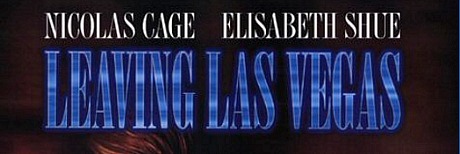Posted on 2.16.05: There are at least three ways to have a depressing time at the movies, and one is worth the grief.
You can sit through something shoddy, inept, sub-standard, and do everything you can to flush it out of your system when it’s over. You can also sit through a smooth, studio-funded, well-made enterprise that everyone’s loving and is making money hand over fist, but which you happen to despise with every fibre of your being.
But watching a quality downer can be edifying. (Naturally.) I’m speaking of a movie that’s totally comfortable with the idea of bumming you out, because it’s trying to be thoughtful, profound or in some way affecting. Which saves it from being a bummer.

Movies that relay or reflect basic truths will never be depressing, but those that tell lies of omission by way of fanciful bullshit always poison the air.
Sadness in good movies is not depressing — it’s just a way of re-experiencing honest hurt. Ordinary People is sad, but if you think it’s depressing as in ‘lemme outta here’ there’s probably something wrong with you. 12.31.16 Update: Ditto Manchester By The Sea.
My beef is with movies that impart a distinct feeling of insanity by way of delirium or delusion, or a bizarre obsession. Frank Darabont’s The Green Mile (turn on the current! smell that burning flesh! cuddle that cute mouse!) and The Majestic (rancid small-town folksiness) are two such films. Ditto Steven Spielberg’s Always.
Martin Scorsese’s Kundun isn’t exactly a downer. It’s worse than that — it’s paralyzing. And yet Scorsese made one of the greatest spiritual-high movies ever with The Last Temptation of Christ.
On the other hand, Marty sent thousands upon thousands of moviegoers into states of numbing depression when Sharon Stone bent over in order to give Joe Pesci a blowjob in Casino.
Leaving Las Vegas, Mike Figgis’ film about a lush who’s decides to drink himself to death and doesn’t quit until he succeeds, has never been and never will be depressing. If you’re engaged to someone who thinks it is, tell him or her it’s over — you’ll be divorcing them eventually, so you might as well get it over with.
And yet the watching of John Huston’s Under the Volcano, about a somewhat older guy (Albert Finney) doing more or less the same thing, is akin to accidentally overdosing on generic cold medication and having to tough it out until the effects wear off.
In her review of Peter Brooks’ King Lear (’71), a profoundly dreary black-and-white thing with Paul Scofield in the title role, Pauline Kael wrote, “I didn’t dislike this film — I hated it.” I was so intrigued by this review that I eventually saw Brooks’ film, and I knew Kael wasn’t talking about what Brooks had done as much as the way his film made her feel deep down.
The Godfather, Part II is a fairly gloomy film but it doesn’t lie. It says that the ties that used to bind families and community together in the old days (the `40s and `50s) have been unraveling for some time. As Al Pacino’s Michael Corleone says to his mother in the second act, “Things are changing.”
The Matrix Revolutions is a profoundly depressing film, especially when all those hundreds of thousands of sentinels start swarming into Zion like wasps. Absolutely relentless, empty-drinking-glass bullshit.
Sitting through Ron Howard’s Backdraft is like injecting an experimental psychotic drug concocted by Dr. Noah Praetorious (the frizzy-haired scientist in The Bride of Frankenstein) straight into your veins.
Most of the movies directed by Sean Penn are pretty damn depressing, but even in this context, The Crossing Guard delivers an exceptionally bleak vibe.
Kevin Bacon’s Loverboy, a well-made drama about an obsessive woman who never lets go of her insanity and is finally destroyed by it, is like being locked in a room with this character, and feels like a Bedlam-type thing.
People who think animal-death movies like Old Yeller, Bambi and The Yearling are depressing are, in the words of Claude Rains’ Captain Renault, “rank sentimentalists.”
The idea that someone saw the spirit of Ernest Hemingway in Chris O’Donnell, and cast him in In Love and War…that’s really bad.












